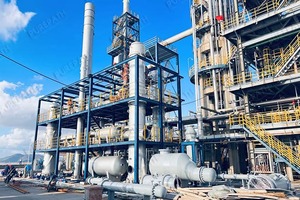Integration of Waste Oil Recycling into Closed-Loop Systems
Body
Recycling Waste Oil: A Sustainable Solution
Waste oil, generated from various sources such as automotive engines, industrial machinery, and cooking processes, poses significant environmental challenges due to its hazardous nature and potential for pollution. However, through advanced recycling technologies, including re-refining and regeneration processes, waste oil can be transformed into high-quality base oils and lubricants, suitable for reuse in a wide range of applications.
Applications Across Industries
The integration of recycled oil into closed-loop systems offers numerous benefits across diverse industries:
- Automotive Sector: Recycled oil can be used as a cost-effective alternative to virgin oil in automotive engines, transmissions, and hydraulic systems. Its lubricating properties help reduce friction, wear, and heat generation, extending the lifespan of vehicle components and improving fuel efficiency.
- Manufacturing and Industrial Processes: Industries such as metalworking, machining, and manufacturing rely heavily on lubricants and hydraulic fluids to ensure smooth operations. Recycled oil can replace virgin oil in these applications, providing comparable performance while reducing waste generation and resource consumption.
- Energy Sector: In power generation facilities and utility plants, recycled oil can be used in turbines, compressors, and transformers to maintain equipment reliability and efficiency. By incorporating recycled oil into maintenance practices, operators can minimize downtime and prolong the service life of critical assets.
Environmental and Economic Benefits
The integration of waste oil recycling into closed-loop systems offers several environmental and economic advantages:
- Resource Conservation: By reusing recycled oil instead of virgin oil, industries can conserve valuable resources and reduce the need for new oil production, thus mitigating the environmental impact associated with oil extraction and processing.
- Waste Reduction: Recycling waste oil diverts hazardous waste from landfills and incinerators, preventing soil and water contamination while reducing greenhouse gas emissions. This contributes to overall waste reduction and promotes a more sustainable waste management approach.
- Cost Savings: Recycled oil typically costs less than virgin oil, offering significant cost savings for businesses while maintaining performance and quality standards. Additionally, the use of recycled oil can lead to lower disposal costs and regulatory compliance expenses, further enhancing cost-effectiveness.
Challenges and Considerations
Despite its numerous benefits, the widespread adoption of recycled oil faces several challenges, including regulatory compliance, quality assurance, and market acceptance. Businesses must ensure that recycled oil meets industry standards and specifications, undergoes proper testing and certification, and is compatible with existing equipment and applications. Additionally, raising awareness and promoting the benefits of recycled oil among stakeholders is crucial to overcoming skepticism and fostering market acceptance.
Conclusion
In conclusion, the integration of waste oil recycling into closed-loop systems represents a significant step towards achieving sustainability and resource efficiency across industries. By harnessing the potential of recycled oil, businesses can minimize waste generation, conserve resources, and reduce environmental impact while realizing cost savings and operational benefits. As we continue to explore innovative solutions for waste management and resource utilization, the widespread adoption of recycled oil is poised to play a pivotal role in building a more sustainable and resilient future for generations to come.











Comments